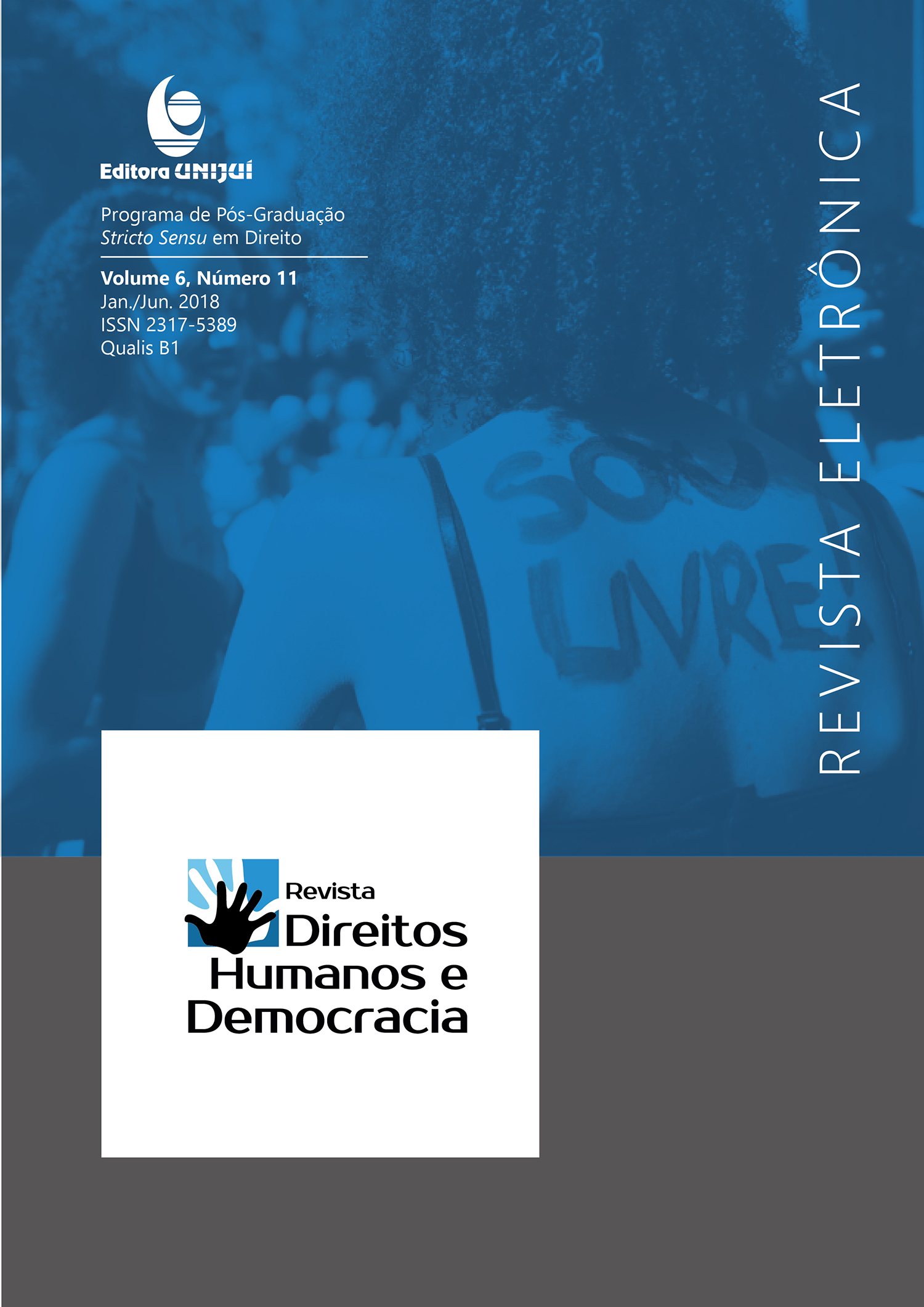PENSANDO O ANO EUROPEU DO DESENVOLVIMENTO: OPORTUNIDADES E LIMITAÇÕES ANTE A CLAÚSULA DEMOCRÁTICA FIRMADA NA UNIÃO EUROPEIA
DOI:
https://doi.org/10.21527/2317-5389.2018.11.202-231Abstract
O ano de 2015 foi a reta final para as metas fixadas pela Organização das Nações Unidas (ONU) para a concretização dos Objetivos de Desenvolvimento do Milênio (ODM) e de negociação da agenda pós-2015. Neste clima, a União Europeia (UE) firmou o “Ano Europeu do Desenvolvimento” (AED) com o slogan “O nosso mundo, a nossa dignidade, o nosso futuro”. Durante os 12 meses de 2015 foram propostas ações visando contribuir para a redução da pobreza no mundo e conhecer as relações da UE com os países em desenvolvimento. Mas em um contexto de decrescimento do PIB em diversas regiões da Europa, de atenuação do investimento produtivo, de desemprego, de restrição aos apoios sociais, de políticas de austeridade, de agravamento das desigualdades regionais e pessoais, foi difícil compreender que o AED tenha sido uma iniciativa exclusivamente voltada para o exterior. Assim, a pesquisa problematizou: O que significou, diante de retrocessos em direitos fundamentais nos países europeus em crise, 2015 ser o Ano Europeu do Desenvolvimento? Uma oportunidade da UE reafirmar seu papel como um dos principais agentes mundiais na luta contra a pobreza? Ou, sobretudo, uma oportunidade de combater a intensificação das desigualdades internas? Para nortear o problema utilizou-se o paradigma integracionista da Constituição da UE e do Direito Comunitário. E também a cláusula democrática firmada pelos países europeus em tratados que os obrigam a promover a democracia e a respeitar os direitos humanos. A pesquisa seguiu uma abordagem qualitativa com enfoque interpretativo e compreensivo, pautado em revisão bibliográfica e documental.
Downloads
Published
How to Cite
Issue
Section
License
By publishing in the Revista Direitos Humanos e Democracia, authors agree to the following terms:
Articles are licensed under the Creative Commons Atribuição 4.0 Internacional (CC BY 4.0), which allows:
Share — copy and redistribute the material in any medium or format;
Adapt — remix, transform, and build upon the material for any purpose, including commercial use.
These permissions are irrevocable, provided the following terms are respected:
Attribution — authors must be properly credited, with a link to the license and indication of any modifications made;
No additional restrictions — no legal or technological measures may be applied that restrict the use permitted by the license.
Notices:
The license does not apply to elements in the public domain or covered by legal exceptions.
The license does not grant all rights required for specific uses (e.g., image rights, privacy, or moral rights).
The journal is not responsible for opinions expressed in the articles, which remain the sole responsibility of the authors. The Editor, with the support of the Editorial Committee, reserves the right to suggest or request modifications when necessary.
Only original scientific articles presenting research results of interest, not previously published or simultaneously submitted to another journal with the same purpose, will be accepted.
References to trademarks or specific products are intended solely for identification purposes and do not imply any promotional endorsement by the authors or the journal.
License Agreement: Authors retain copyright over their articles and grant the Revista Direitos Humanos e Democracia the right of first publication.













